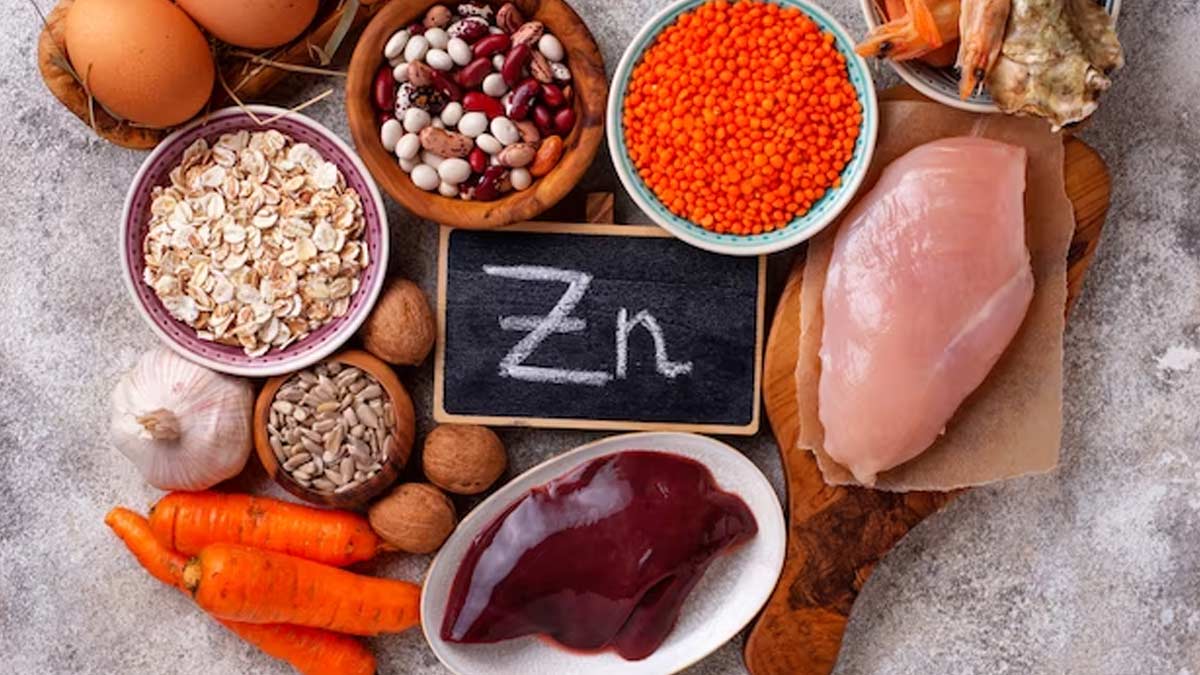
When we think of malnutrition, images of skeletal infants with bloated stomachs, loitering in slums with longing and surrender in their eyes, conjure up in our mind. However, it may be surprising for you to hear, that children living in metro cities, with ample access to quality food, and a healthy looking appearance, might be suffering from malnutrition as well.
Table of Content:-
As per a study conducted by the Indian Society of Science Biology and Medicine, ‘malnutrition and related health disorders are commonly prevailing childhood diseases in the urban community and can effectively be addressed by appropriate public health program.’
The Role of Zinc in the Body

Malnutrition occurs when your child does not receive the necessary nutrients in the right quantities. It can manifest in various forms, including undernutrition, overnutrition, and micronutrient deficiencies. All these issues can manifest serious medical problems in your child including stunted growth, weakened immune systems, and cognitive impairments.
Dietary experts have been hailing zinc as a vital nutrient, as it stands out in the fight against malnutrition. It serves as a cofactor for over 300 enzymes involved in various biochemical reactions. Studies have found that zinc hastens the recovery from mild to moderate malnutrition due to its immense health benefits. Here are some key roles of zinc:
- Immune System Support: Zinc is crucial for maintaining a robust immune system. It helps the body fight off infections by supporting the production and function of immune cells.
- Growth and Development: Zinc is necessary for proper growth and development in children. It plays a vital role in cell division, tissue repair, and DNA synthesis.
- Wound Healing: Zinc aids in the healing of wounds and the repair of tissues. It helps with collagen formation, an essential protein for skin health.
- Cognitive Function: Zinc is involved in cognitive processes and memory formation, making it important for mental health and learning.
- Antioxidant Defense: Zinc acts as an antioxidant, protecting cells from oxidative stress and damage.
Including Zinc In Your Diet

Zinc is an essential part of the prostate, bones, liver, muscle, kidney, adrenals, brain, testes, spleen and lung. However, despite this abundance of zinc in the body, the exchange of this mighty nutrient is limited within the body, and its deficiency can only be combatted through external sources.
Here are some food sources which are rich in zinc that can help your child escalate away from malnutrition:
- Meat: Lean meats such as beef, pork, and lamb.
- Poultry: Chicken and turkey.
- Seafood: Oysters are one of the best sources of zinc. Other seafood like crab, lobster, and shrimp also provide zinc.
- Dairy: Dairy products like milk, cheese, and yogurt.
- Nuts and Seeds: Cashews, pumpkin seeds, and hemp seeds.
- Legumes: Beans, chickpeas, and lentils contain zinc. However, they also contain compounds called phytates that can inhibit zinc absorption, so it's a good idea to soak or cook them before consumption.
- Whole Grains: Some whole grains like wheat germ and quinoa contain zinc.
- Fortified Foods: Check food labels for products that are fortified with zinc, such as certain cereals.
- Vegetables: While vegetables generally contain lower amounts of zinc, some like spinach and mushrooms provide small but valuable amounts.
- Fruits: Fruits like avocados and blackberries have trace amounts of zinc.
The lack of a well balanced diet can make even those children malnutritioned who have a surplus access to good quality food. However involving zinc rich foods in your diet can help your child combat malnutrition. Its role in maintaining a healthy immune system, promoting growth and development, and addressing micronutrient deficiencies cannot be overstated. If your child has specific dietary concerns or restrictions, consider consulting with a healthcare professional or a registered dietitian for personalised guidance on meeting your child’s nutrient needs.
Also watch this video
How we keep this article up to date:
We work with experts and keep a close eye on the latest in health and wellness. Whenever there is a new research or helpful information, we update our articles with accurate and useful advice.
Current Version